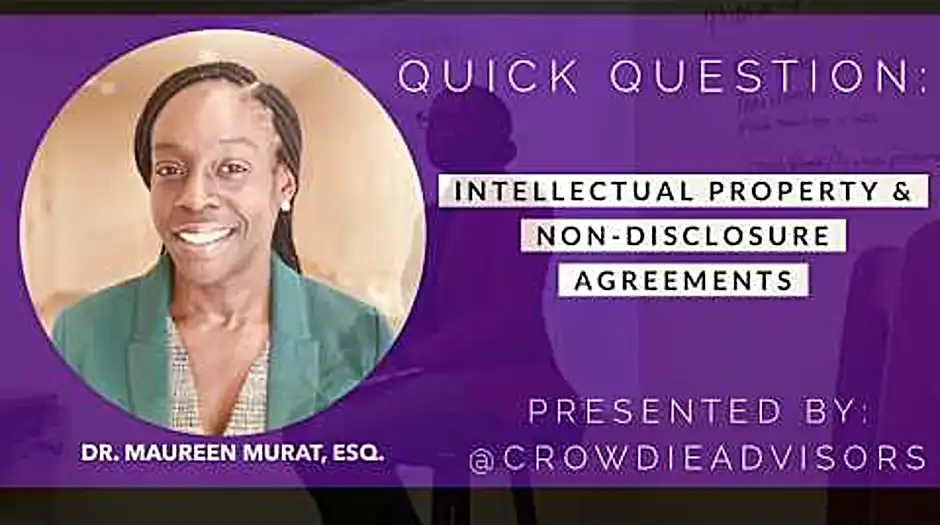Intellectual property rights non disclosure agreement [Expert Answers]
Table of Contents
- What are the 5 key elements of a non-disclosure agreement?
- When should a non disclosure agreement be used?
- What happens if someone breaks a non disclosure agreement?
- Is a non disclosure agreement the same as a confidentiality agreement?
- Why use an NDA instead of a copyright or patent?
- Can an NDA protect an idea?
- Do non disclosure agreements expire?
- What is an example of a non-disclosure agreement?
- What makes an NDA unenforceable?
- What are the 7 intellectual property rights?
- What is not included in intellectual property rights?
- What is an intellectual property Assignment agreement?
- What is the difference between intellectual property and copyright?
- What requires a non-disclosure agreement?
- What is a non-disclosure agreement patent?
- What are the three types of non disclosure?
- Does an NDA hold up in court?
- What are the 4 types of intellectual property?
- How do you document intellectual property?
- Does your employer own your intellectual property?
Last updated : Aug 24, 2022
Written by : Caridad Falci |
Current |
Write a comment |
What are the 5 key elements of a non-disclosure agreement?
- Identification of the parties.
- Definition of what is deemed to be confidential.
- The scope of the confidentiality obligation by the receiving party.
- The exclusions from confidential treatment.
- The term of the agreement.
What is an intellectual property Assignment agreement?
An intellectual property assignment agreement provides assurance to investors that the founders have legally transferred to the company the intellectual property required to run the business.
What requires a non-disclosure agreement?
NDAs are generally required when two companies enter into discussions about doing business together but want to protect their own interests and the details of any potential deal.
What is a non-disclosure agreement patent?
Updated June 02, 2022. A patent or invention non-disclosure agreement is a unilateral (1-way) agreement that is used to protect an invention. Due to the confidential nature of an unexecuted idea for a product, an NDA can be essential for an inventor when sharing confidential information to 3rd parties.
What are the three types of non disclosure?
There are three types of NDAs: unilateral, bilateral, and multilateral.
Does an NDA hold up in court?
While the rules can certainly vary from state to state, most jurisdictions consider non-disclosure agreements to be enforceable as long as they are drafted and executed properly.
What are the 4 types of intellectual property?
Patents, trademarks, copyrights, and trade secrets are valuable assets of the company and understanding how they work and how they are created is critical to knowing how to protect them.
How do you document intellectual property?
To obtain a patent in the U.S., the inventor must file a patent application with the United States Patent and Trademark Office (USPTO), which includes (1) a written document comprising a description and claims, (2) drawings when necessary, (3) an oath or declaration, and (4) filing, search, and examination fees.
Does your employer own your intellectual property?
Typically, employers are entitled to all intellectual property created at/for their business, unless there exists a contract stating otherwise.
When should a non disclosure agreement be used?
An NDA is typically put to use any time that confidential information is disclosed to potential investors, creditors, employees, advisors, clients, or suppliers—or any other stakeholders that need access to the company's confidential information.
What happens if someone breaks a non disclosure agreement?
Violating an NDA leaves you open to lawsuits from your employer, and you could be required to pay financial damages and possibly associated legal costs. It's illegal to reveal trade secrets or sensitive company information to a competitor.
Is a non disclosure agreement the same as a confidentiality agreement?
NDA vs confidentiality agreement: What is the difference? A confidentiality agreement binds all parties to keep secret information confidential, while an NDA upholds secrecy by creating a confidential relationship between the parties who sign it.
Why use an NDA instead of a copyright or patent?
Sometimes, inventors use a non-disclosure agreement as a replacement for a patent application. An NDA can contractually protect you against investors, potential licensees, and buyers. These individuals might steal the inventor's idea. However, the contract may not provide the inventor with sufficient protection.
Can an NDA protect an idea?
An NDA creates the legal framework to protect ideas and information from being stolen or shared with competitors or third parties.
Do non disclosure agreements expire?
No Expiration Dates So long as they are kept secret, trade secrets do not expire. Likewise, the confidentiality obligations in an NDA should have no expiration date.
What is an example of a non-disclosure agreement?
This Nondisclosure Agreement (the "Agreement") is entered into by and between _______________ with its principal offices at _______________ ("Disclosing Party") and _______________, located at _______________ ("Receiving Party") for the purpose of preventing the unauthorized disclosure of Confidential Information as ...
What makes an NDA unenforceable?
The most common areas where non-disclosure agreements are determined to be unenforceable are where they are not limited in duration, or scope. Illegality: Courts will refuse to enforce a contract where the underlying purpose is against the law.
What are the 7 intellectual property rights?
Rights. Intellectual property rights include patents, copyright, industrial design rights, trademarks, plant variety rights, trade dress, geographical indications, and in some jurisdictions trade secrets.
What is not included in intellectual property rights?
Certain examples of Intellectual property are patents, copyrights and trademark, and it does not include physical property of an intellectual.
What is the difference between intellectual property and copyright?
The terms “copyright†and “intellectual property†are often used interchangeably. However, copyright is just a part of the scope of intellectual property, as are trade marks, patents, and designs. Intellectual property (IP) describes a form of property which is the intangible output of the human creative mind.

Check these related keywords for more interesting articles :
Can band names be trademarked
Why would someone trademark their name
Can you trademark curse words
Trademark registration fees for proprietorship
Can you copyright a quote
How to search italian patent
Brand ambassador register
Intellectual property management system certification
How to check patent rights in india
How to draft a reply to trademark objection
How to write about copyright
Can you trademark a show name
How to purchase patent
How to submit patent online
How to add copyright to after effects
Did you find this article relevant to what you were looking for?
Write a comment
Comment by Ferdinand Compston
welcome my name is Daniel Cohen I'm a registered patent attorney at Howard M Kohn and associates I would like to welcome you to another segment of our video blog series on protecting your intellectual property this video is entitled non-disclosure agreements clients frequently call wanting to know how they can disclose their invention to a prototype maker a manufacturer an investor or a potential buyer without them stealing their idea I usually suggest using a nondisclosure agreement often called an NDA to protect the confidentiality of theirs idea a non-disclosure agreement is actually a contract between one party such as the inventor who has the information and another party called the recipient that wants to receive the information the main purpose of the non-disclosure agreement is to ensure that the information remains secret and is not stolen often the receiving party which may be a company or an investor will provide a non-disclosure agreement for you to sign and you're wondering if you're properly protected in reviewing an NDA there are five important elements to consider the first is the definition of the confidential information ideally the NDA sets forth the scope of the information covered without actually disclosing the secrets the second element is identifying what information is not required to be protected and held confidential by the receiving party usually this is information that the recipient already knew or becomes publicly known or has independently developed the third element is the obligation for the receiving party to maintain the information in confidence and limit its use this might include who in the company has access to the information the fourth element is the period of time generally between one and five years that the recipient has to hold the information confidential finally the fifth element includes miscellaneous conditions generally found at the end of every NDA for example these could comprise which dates law will apply and the event the agreement is breached and a requirement that potential disputes be arbitrated as you can see a nondisclosure agreement can be quite complex and requires skill and experience in its preparation and negotiation the best advice is to have a patent attorney handle preparing and negotiating your NDA we have over 35 years of experience in crafting and negotiating the terms of NDA's if you have any specific questions or would like to schedule an initial free consultation please contact us by phone or through the employment box listed on this page thank you for listening it's been my pleasure to share valuable information with you today I look forward to speaking with you
Thanks for your comment Ferdinand Compston, have a nice day.
- Caridad Falci, Staff Member
Comment by PuszM
I know you also mentioned intellectual property so so IP work is very interesting I think a lot of people who are in the technology field or who have tech businesses often think that the first thing you need to do when you want to start your business is to have an NDA to be able to talk to anybody about your product and I think that is a mistake be one because if you cannot talk about your product without revealing proprietary information then there's a problem right you should because you wouldn't be sharing that with your customers anyway right you would be sharing with them why they should be buying it why they should be engaging with you et cetera and it shouldn't have to include proprietary information to be able to give that to your client and then - I think MBAs are overused and under the value in what you think you're getting with an NDA it's not necessarily realized so non-disclosure agreements that's what NEPA stands for sorry I'm generally speak to you know that there's some information that you're exchanging with someone and you they are not allowed to speak on it unless you know if there are exemptions like if it's already out in the open etc but there should be some form of exchange of communication so you if your NDA is only so that you can tell someone about it then it doesn't really fully fully represent the relationship in that NDA and so to me it's kind of useless and just because you have an NDA doesn't mean that people won't talk about your business or won't tell people about it etc and in a way I don't think it's bad to have other people talking about your business and things like that and I don't think and I think India's make people feel as though they should be fearful about sharing their ideas and so they because it's like if you share it someone might steal it and take it and go do it and that's not necessary it happens I won't it doesn't happen but I don't think that's the foot pudding you should be on when you talk about your business it should be more about what problem you're solving what the solution is and how it could benefit your customers not all if I tell you about it you're gonna take it and then take the money technically you haven't even made any money yet right so you have to also think about that so is it really a business if you haven't actually earned any income and you're not out in the market etc not to say that you shouldn't have an NDA in place I'm just saying that to be when you think about putting it in the a in place think about all the things that come along with it and why you're doing it not because some incubator says that you should do it right you should do it because there is an exchange of information that you want to keep confidential and that person will likely be an investor maybe or that person will likely be a partner like there are certain people you would want to have an NDA with you wouldn't have that with your customer
Thanks PuszM your participation is very much appreciated
- Caridad Falci
About the author

Caridad Falci
I've studied african history at University of California, Riverside in Riverside and I am an expert in information theory. I usually feel blank. My previous job was fashion model I held this position for 16 years, I love talking about karting and painting. Huge fan of Doug Hutchison I practice canoe slalom and collect barbie dolls.
Try Not to laugh !
Joke resides here...
Tags
When should a non disclosure agreement be used
What happens if someone breaks a non disclosure agreement
Is a non disclosure agreement the same as a confidentiality agreement
Why use an NDA instead of a copyright or patent
Can an NDA protect an idea
Do non disclosure agreements expire
What is an example of a non-disclosure agreement
What makes an NDA unenforceable
What are the 7 intellectual property rights
What is not included in intellectual property rights
What is an intellectual property Assignment agreement
What is the difference between intellectual property and copyright
What requires a non-disclosure agreement
What is a non-disclosure agreement patent
What are the three types of non disclosure
Does an NDA hold up in court
What are the 4 types of intellectual property
How do you document intellectual property
Does your employer own your intellectual property
 : 191
: 191

